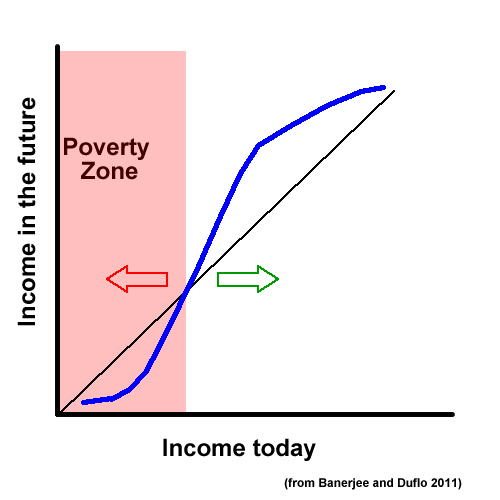BBS
Can you go through this text I wrote:
and explain, possibly edit the post to better explain, how government taxing affects this whole wealth creating (or not creating) chain?
thanks
In other words, people should be morally obligated to donate some amount of their goods to very poor people since this increases the net utility of the world.
Let's address the situation where donating can conflict with the means of creating wealth for the very poor.
To be clear, a donation is a transfer of wealth. In terms of wealth alone, this is zero-sum. In terms of utility, this is positive-sum (given that the donation is voluntary, of course). An exchange is a creation of wealth because in an exchange ex-ante each party values the other party's good more so than their own good. After the exchange, each party has increased their value (i.e. wealth). In terms of either wealth or utility, they are both positive-sum. We're assuming that utility is an increasing function in wealth and donations.
Now, suppose you pay $10 for a T-shirt that's been imported from an Indonesian 'sweat-shop'. Your $10 becomes distributed among the chain of suppliers--from the retailer, shipper, sweat-shopper, and the suppliers of labor within each market. Consequently, your exchange increases the net wealth of the world, and net utility has increased since additional wealth causes utility to increase. Net wealth: >$10--in terms of total value. Net utility: +something + wealth (i.e. the value created from exchange).
If you were instead to donate $10 to one of the many workers in the sweat-shop, then you forego the opportunity to increase the wealth and utility of all the other very poor workers in that sweat-shop as well as everyone (of varying wealth) in the production process. In other words, donating has a cost (the opportunity cost), and an exchange has an opportunity cost (from whatever else you could've done with $10). In this example, net wealth: $0. Net utility: +something + 0(wealth).
In short, since we live in a world of scarcity every action of ours incurs a cost. In the trade-off between donating and trading in terms of maximizing utility, trading increases utility on average more so than donation. So, why not opt for 100% trade and 0% donation*?*tangent: and for that matter, why not advocate for the abolishment of international trade restrictions?
and explain, possibly edit the post to better explain, how government taxing affects this whole wealth creating (or not creating) chain?
thanks
